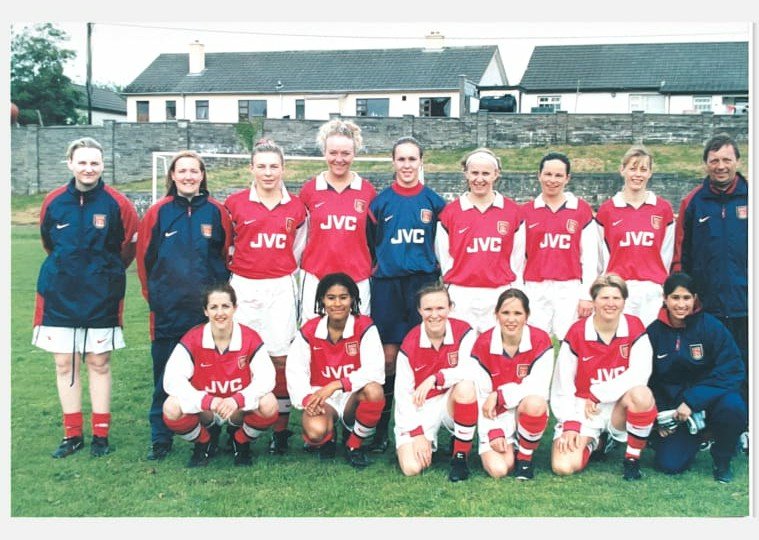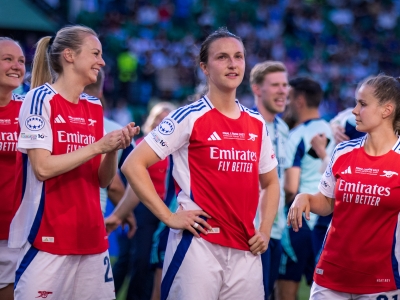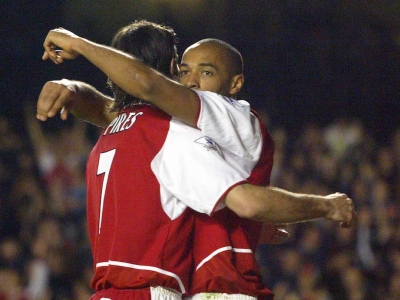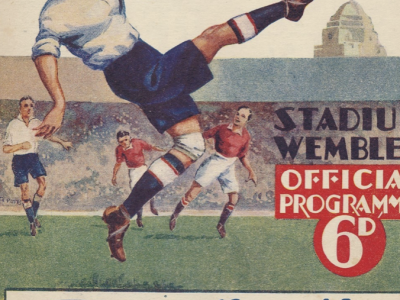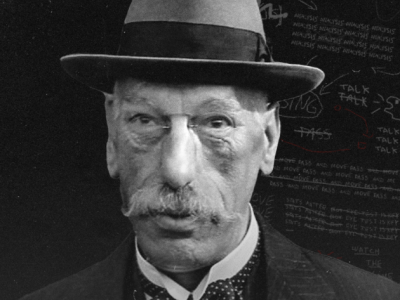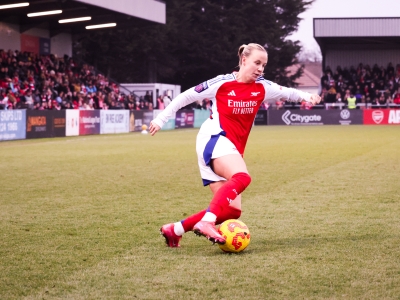Aman started off playing with her elder sibling, just in her backyard, and as some would know- elder siblings never let you shoot. So, Goalie it was. Word went from her family to relatives and acquaintances that Aman played football, and good football. It was one of her mother's clients at work who mentioned that Red Star Southampton was going to launch an under-10s team. That small piece of information set her on a path that would change history.
It's almost like football chose her. Before representation was even a conversation, little Aman was out there representing club and country at the highest level. At 15, while preparing for her GCSEs, Aman received a call that every young footballer dreams of -an opportunity to play for Arsenal. Arsenal Women under Vic Akers were at the top of their game. While at Arsenal, she became the first girl to be accepted to a Premier League boy’s academy - with Southampton. It might sound like a cakewalk but it wouldn't have been possible without her consistent hard work and her parents' unmatched support- from driving her miles down to Arsenal’s training ground after school, to letting her skip family functions for games. I feel Mr and Mrs Dosanj deserve a mention for letting the title of "The first ever South Asian to play for Arsenal and England" come into the picture- one that, surprisingly still belongs to Aman alone.
Mentored by Sue Buckett and 'Safe hands' as they call him- David Seaman, she was bound to flourish. Around the time Bend It Like Beckham hit the big screen, Aman’s story came into the limelight. The film resonated deeply with the South Asian audience as it portrayed a football-loving Sikh girl breaking cultural and societal barriers. And Aman? She was living that very story. Parminder Nagra, who played Jess in the movie said "I think it is brilliant that there is someone out there who is so close to the story". It was then that the Telegraph ran the iconic headline- “She bends it like Beckham and saves it like Seaman.” Let me try justifying it- quoting Aman herself;
'Both Jess and I were footy-mad Sikhs who were studying for our A levels and snuck out of weddings and family functions for games and landed university scholarships to play in the U.S. Now that my achievements were deemed newsworthy, doors began opening- I won the Young Achievers Award at the 2002 BBC Mega Mela and even helped launch the 2002 FIFA World Cup Royal Mail stamp collection alongside Nagra. For many South Asian kids, Bend It Like Beckham and the way it made marginalized communities finally feel seen spoke to the power of storytelling; for me, it was even more personal. Now, over two decades later, the film also offers a chance to reflect on how far we have—and haven’t—come.'
Aman's time at Arsenal was a period of rapid growth and immense challenge. Training and competing at one of the top clubs in England, she was surrounded by some of the best talents in women's football like Alex Scott and Rachel Yankey. Despite being younger than many of her teammates, she held her own, proving herself worthy of a place in a highly competitive environment. Arsenal’s reputation for excellence meant that every mistake was scrutinized, but Aman embraced the pressure and made it work in her favour. Being a South Asian girl in an elite football environment was both a privilege and a challenge. Her presence at Arsenal was groundbreaking- she wasn’t just representing herself but for an entire community that had rarely seen itself reflected in professional football.
Aman’s journey didn’t stop when she left football- it just took a different path. Unforeseen circumstances forced her to pack her bags for Canada but if there’s one thing Aman knew how to do, was to adapt. She found herself flawlessly running her family's small business, however this time, the genre was food, not football. It might seem like a sharp turn, but for Aman, it made perfect sense; just like football, food had the power to bring people together, to tell stories, to break barriers. So she rolled up her sleeves and started The Paisley Notebook, using food as a way to spark conversations about culture, identity, and representation.
Aman's impact extends beyond football; her story is one of perseverance, breaking barriers, and inspiring future generations in any field they choose to pursue. As Aman says, she'd want the young girls to be able to name-drop her into a conversation saying ''Aman Dosanj did it, so I can too.'' The journey won’t always be easy- there will be moments when they feel out of place, when people underestimate them, when they don’t see others who look like them on the pitch but they should remember that those challenges aren’t reasons to stop; they’re reasons to push even harder. And yet, after all these years, Aman remains the first and only South Asian to play for Arsenal and England, we should make sure she's not the last.
A version of this article appears in the latest print edition of the Arsenal Women Gooner Fanzine, available online and at Arsenal Women v Manchester United on Saturday.

